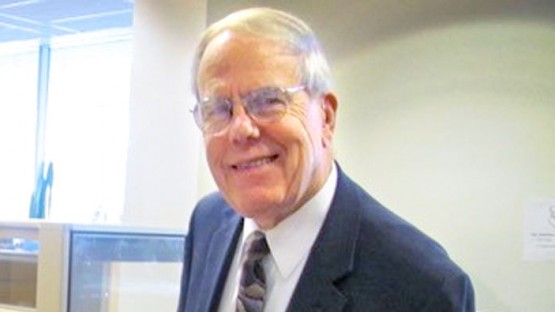Antonie Blackler, professor emeritus of zoology and an expert on developmental biology, died June 3 in Ithaca. He was 88.
He was known for groundbreaking fundamental work on the origin of sex cells in vertebrates. His experiments with South African clawed toads yielded important insights into the development and reproduction of amphibian embryos, with implications for other animals and humans.
His work also illuminated our understanding of hybrids and evolution in amphibians.
“Tonie Blackler did extremely important – foundational – work in developmental biology, on the function of germline, the cells that make eggs or sperm, dating back to the 1950s,” said Mariana Wolfner, the Goldwin Smith Professor of Molecular Biology and Genetics in the College of Arts and Sciences (A&S). “He was a very modest, self-effacing person, very wise, and had a deep and broad knowledge of biology.”
“I knew Antonie Blackler as a distinguished teacher in developmental biology and in introductory biology for freshmen,” said Thomas Fox, professor of molecular biology and genetics. “He was collegial, thoughtful and urbane in everything he did.”
Blackler was born in 1931 in Portsmouth, England. He received a B.S. in 1953 and a Ph.D. in embryology in 1956, both from University College in London. After assignments at Queen’s University of Belfast, Northern Ireland, and then the University of Oxford, he was a professor at the University of Geneva, Switzerland, from 1961-64. He joined Cornell’s faculty in 1964 and became a professor emeritus in 2002.
He served as chair of the Section of Genetics and Development from 1993-99; the section later became the Department of Molecular Biology and Genetics, which is part of A&S and the College of Agriculture and Life Sciences.
“Our faculty expressed an affection for him that went beyond his responsibilities as chair; he remembered so many details about our lives and work, and could inject humor into almost any situation,” said Eric Alani, professor of molecular biology and genetics.
Wolfner noted that Blackler had posted a Mark Twain quote on his office door: “Eat a frog first thing in the morning and nothing worse will happen to you the rest of the day.”
His work with the South African clawed toad focused on the female germline – cells that make eggs. His experiments transplanting cells from one embryo to another showed that the germline is derived from special cells set aside in the early embryo.
“This result remains an important pillar of our understanding of development and reproduction, with much relevance to fertility and medicine,” Wolfner said.
He also transplanted germline cells from one species to another, which led to results that showed that an embryo’s mitochondria is derived entirely from its mother. In addition, he conducted interspecies transplantation experiments with the goal of finding a host species into which germline of an endangered frog species could be transplanted, to propagate or restore the species.
Blackler taught Cornell’s large introductory biology course, basic developmental biology and an embryology lab course. He was also program director for biology at Weill Cornell Medical College-Qatar from 2002-05, where he also taught.
Nationally, he served as program director of developmental biology from 1974-75 and director of the Division of Physiology, Cell and Molecular Biology from 1981-82, both at the National Science Foundation in Washington, D.C.
He was a member of the Society for Developmental Biology, the International Society for Developmental Biology and the Swiss Zoological Society.
Blackler is survived by his wife of 50 years, Shelley ’67, and two children.
Plans for a memorial service will be announced at a later date.















